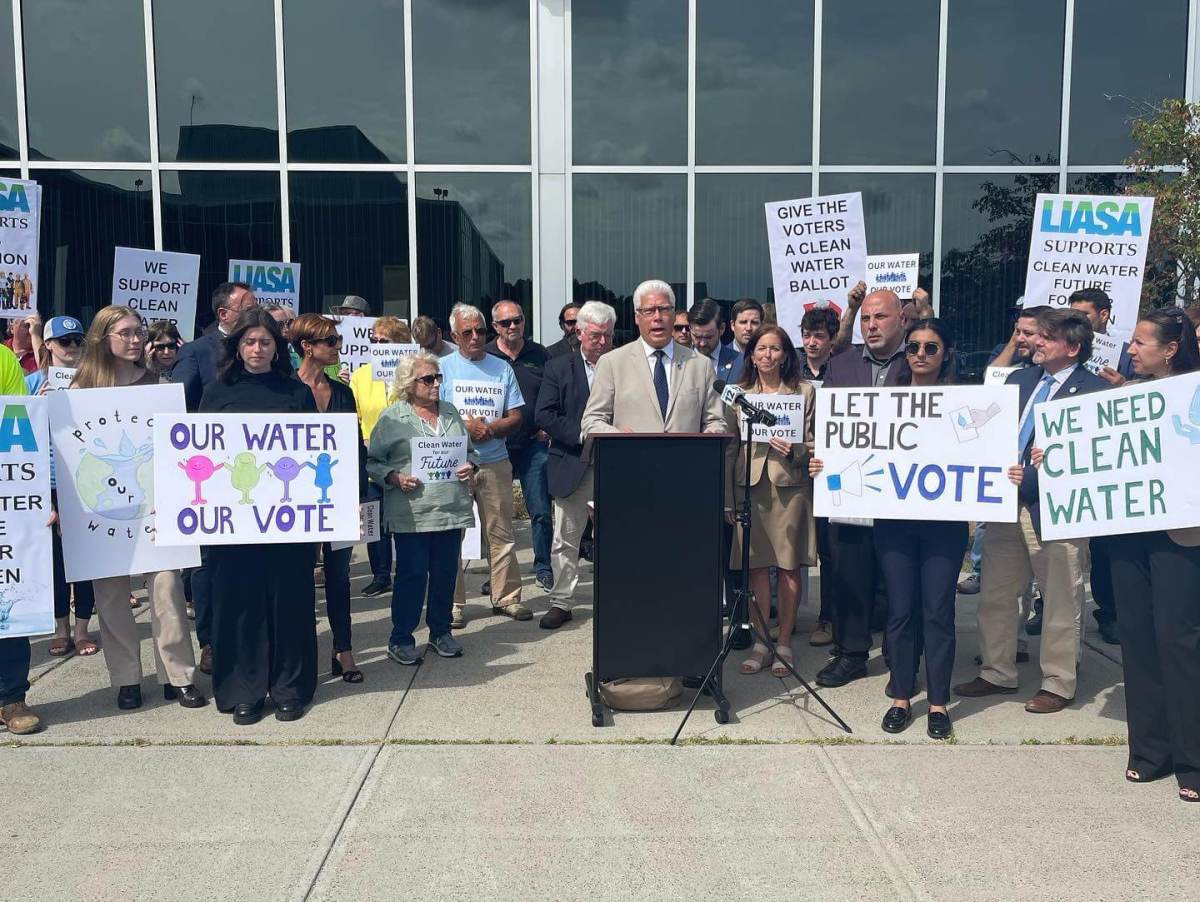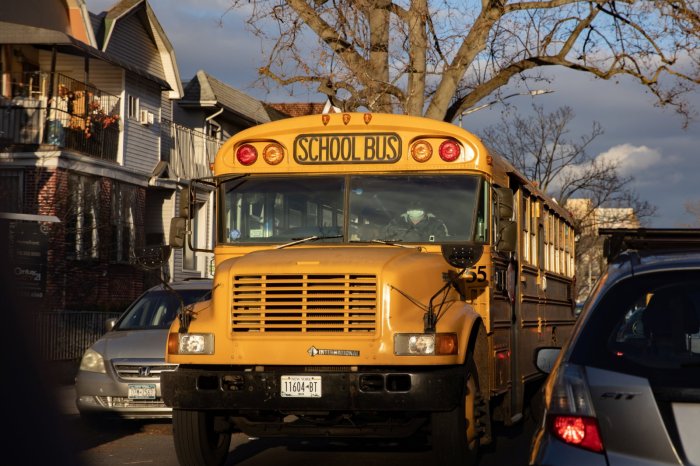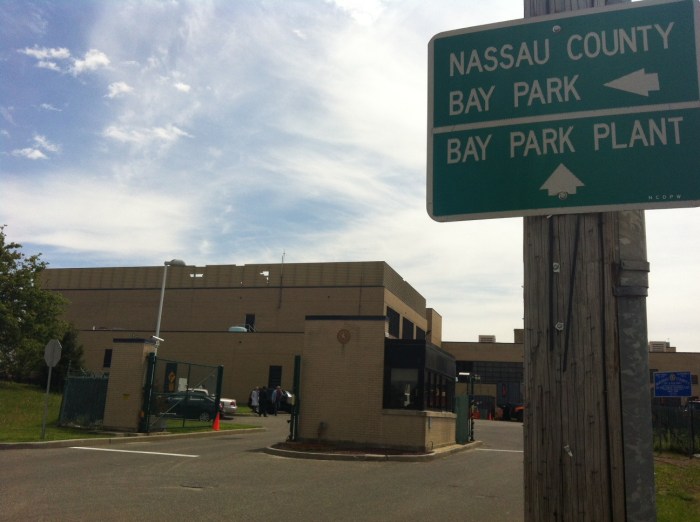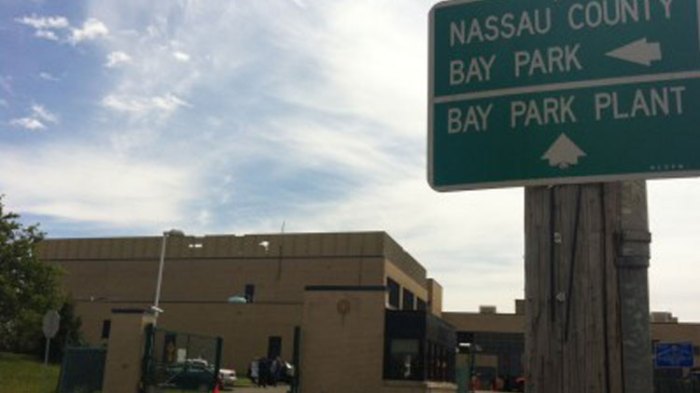Community Leaders Rally for Suffolk Sewer System Plan
Dozens of environmentalists, labor leaders, and proponents rallied Wednesday in Riverhead for a proposed ⅛-cent sales tax increase to fund expanding sewers in Suffolk County that voters may decide on Election Day.
“Our Water, Our Vote” was among the messages on signs picketers held outside of the Suffolk County Legislature building before a lengthy public hearing on a measure that would put the question to voters on ballots in a November referendum. The proposed tax hike would help pay for expanding and upgrading sewers as well as installing upgraded nitrogen-removing septic systems to replace antiquated cesspools and septic systems. The plan was one of two sewer measures up for debate — the other would also consolidate Suffolk’s 27 individual sewer districts into one.
“We can’t let the strive for perfection be the enemy of the good,” Matthew Aracich, president of the Building and Construction Trades Council of Nassau and Suffolk Counties told the legislature. “We know that with the funding that’s available, we can make these changes and make sure that we make Long Island better.”
The plan comes as the county continues to make up for lost time since sewer expansion plans were shelved decades ago, resulting in about 74% of homes in Suffolk currently using outdated cesspools and septic systems that are leaking significant amounts of nitrogen, which has caused polluted drinking water, toxic algae blooms and a loss of biodiversity in Long Island ecosystems.
“The best time to plant a tree was 30 years ago, but the second best time is now,” a Chinese proverb, was a common refrain throughout the hearing.
Suffolk County Deputy County Executive Peter Scully, the county’s water quality czar who previously served as Long Island regional director of the New York State Department of Environmental Conservation, told the legislature that the sewer district consolidation would rectify property tax inequity among homeowners under the current system.
“It leads to situations where the average resident in one sewer district in Huntington last year paid $1,339 a year for sewer service, which may not scare you too much, until I tell you that a resident in an adjoining district paid only $156,” he said.
Adrienne Esposito, the executive director of nonprofit Citizens Campaign for the Environment, urged lawmakers to advance the measures, although it is unclear if the legislature will pass the bills in time to get them on ballots this fall.
“This is a clean water plan that has been vetted for 10 years,” she said. “This is the most discussed, most vetted, most stood-behind plan in the history of Suffolk County. And now is the time to implement it.”


































